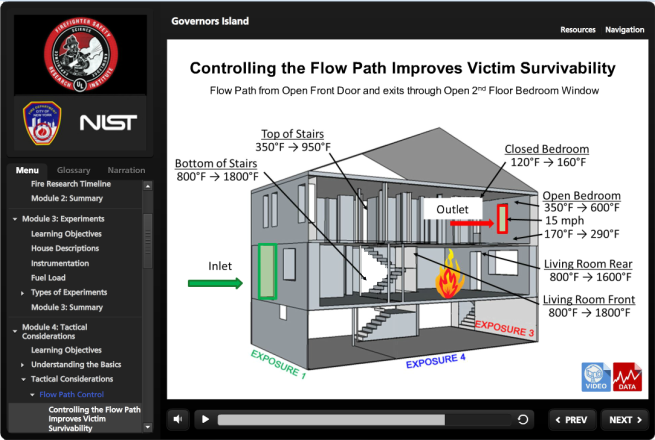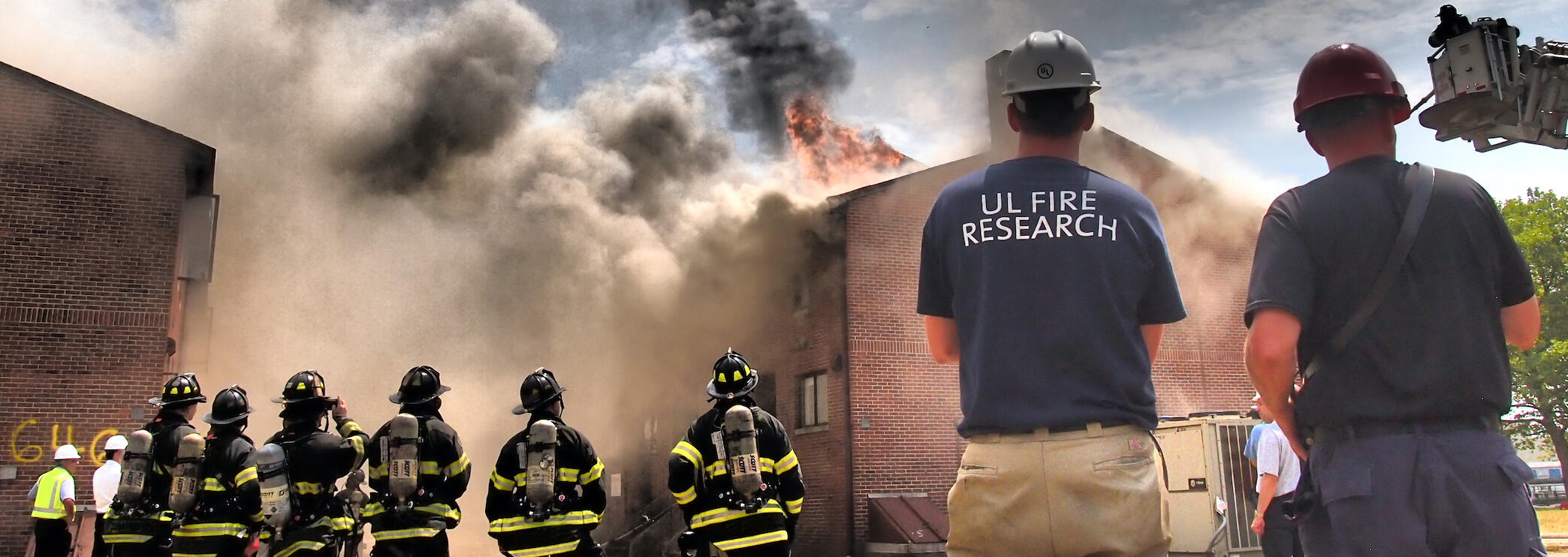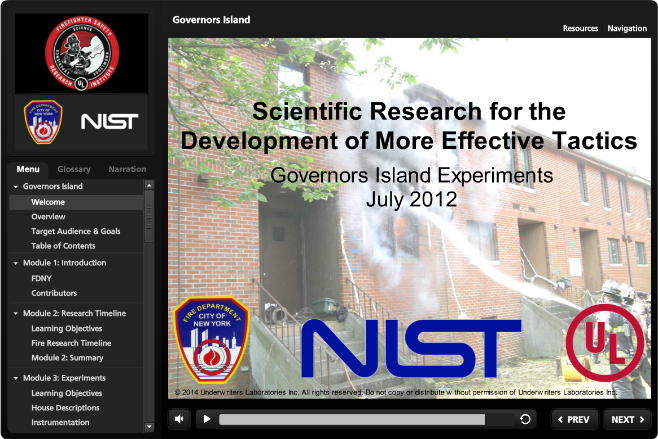UL FSRI is proud to announce the release of “Scientific Research for the Development of More Effective Tactics” – an online course that serves as a culmination of the full-scale field experiments performed on Governors Island by the Fire Department of New York, NIST and UL. The interactive training takes learners through a research timeline of the previous fire dynamics research conducted by NIST and UL, all of the details that went into the tests, test results, and tactical considerations derived from the test results. This course brings science to the streets by examining two main groups of tactical considerations. The first group looks at the impact of controlling ventilation and flow paths. The second explores the use of exterior fire attack as a means to rapidly reduce the fire hazard inside the structure in order to facilitate interior fire operations. Fires were conducted within numerous 3 story residential row houses with ignition occurring in the basement, in the first floor living room and in a second floor bedroom.

UL FSRI Director Steve Kerber shared, “This training program presents the most up to date fire dynamics research in a way firefighters at all levels can comprehend. It builds off of all of the UL and NIST firefighter research to dat
e and provides students with the science they need to examine their tactical approaches. Tactical considerations are presented with video and data in a way that is easy to understand. For the firefighters out there that want all the details, buttons allow access to all of the data graphs, experimental video and relevant FDNY procedures.”
There are many features to this course that will increase fire service knowledge. An initial interactive research timeline provides links to more than 15 years of previous UL and NIST research that led to this series of experiments. Then basic fire dynamics concepts are introduced and linked to tactical considerations that will allow for the students to re-examine their current operating procedures. Finally, students have the opportunity to use interactive examples to develop an in-depth understanding of the impact of ventilation and water application on fire dynamics. The course content is available by clicking the image below. For mobile users, the course is compatible with tablet devices and iPad via the Articulate Media Player application in the App Store.


